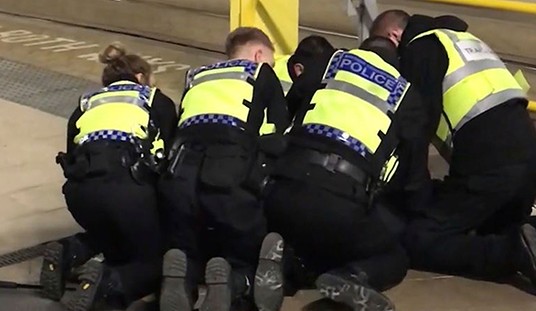
Wesleyan University, a small liberal arts college in Connecticut, would appear to be the last place a major blow up regarding free speech and freedom of the press would occur.
But an op-ed in the student newspaper, the Wesleyan Argus, that mildly rebuked the Black Lives Matter movement and asked several uncomfortable questions sent the anti-free speech forces on campus into overdrive. They are circulating a petition to cut off funding for the paper until certain “demands” are met.
“The undersigned agree to boycott the Argus, recognizing that the paper has historically failed to be an inclusive representation of the voices of the student body,” the petition reads. “Most specifically, it neglects to provide a safe space for the voices of students of color and we are doubtful that it will in the future.”
The petition, signed by 167 students, alumni, staff and one Middletown community member as of Tuesday night, further lists five demands directed at The Argus. The boycott will include disposing of copies of The Argus on campus and insisting that its funds from the WSA are withheld until the demands are met.
These demands include commitment by The Argus to create work study/course credit positions; a monthly report on allocation of funds and leadership structure; a required once-per-semester Social Justice/Diversity training for all student publications; active recruitment and advertisement; and open space on the front page in the publication dedicated to marginalized groups/voices, specifying that if no submissions are received, The Argus will print a section labeled “for your voice.”
In accordance with the boycott, organizers of the petition declined to comment further.
“On behalf of concerned Wesleyan students we are boycotting the Argus until the demands are met,” organizers of the petition wrote in an email to The Argus. “Therefore we are not available to comment or be quoted in any article published by the same newspaper that we are boycotting for supporting institutional racism.”
Paul Singley, President of the Connecticut Society for Professional Journalists, said he believes that student publications should make a concerted effort to represent the perspectives of all students, but its First Amendment rights should not be threatened by publishing unpopular views.
“That’s what a good newspaper does,” he said. “It shares ideas, it shares
opinions.”
What do these thugs care about a “good newspaper”? They just made the demand to dictate what goes on the front page of the newspaper. These are people who wouldn’t know what “free press” is if it came up and bit them in the behind.
And the source of all this hysterical gibberish? An op-ed that asked legitimate questions about Black Lives Matter in the wake of several police shootings:
I talked to a Black Lives Matter supporter, Michael Smith ’18, who recoiled when I told him I was wondering if the movement was legitimate. This is not questioning their claims of racism among the police, or in society itself. Rather, is the movement itself actually achieving anything positive? Does it have the potential for positive change?
There is evidence to support both views. Police forces around the country are making more of an effort to be more transparent, have undergone investigations to root out racist officers and policies, and have forced the conversation to the front pages after being buried on the back pages for far too long.
On the other hand, following the Baltimore riots, the city saw a big spike in murders. Good officers, like the one I talked to, go to work every day even more worried that they won’t come home. The officer’s comments reminded me of what soldiers used to say after being hit with IEDs in Iraq. Police forces with a wartime-like mentality are never a good thing.
Smith countered with, “You can’t judge an entire movement off the actions of a few extremists.”
I responded with, “Isn’t that what the movement is doing with the police? Judging an entire profession off the actions of a few members?”
Hence, my concerns that the movement is not legitimate, or at the very least, hypocritical.
The mindless demands to shut down opposing ideas and viewpoints while dictating what the paper can publish is typical of these Stalinists who evoke memories of the way the free press was killed in Eastern Europe after World War II. “Workers’ Committees” would set up shop in newspaper offices to tell the staff what stories to write, how to write them, and most importantly, what was the party line on important issues.
Isn’t this exactly what the Black Lives Matter petitioners want?
It’s terrifying to contemplate the rising up of an intellectual elite with no knowledge or respect for free press or freedom of speech. But that’s what today’s colleges and universities are about and there doesn’t appear to be anything anyone can do about it.










Join the conversation as a VIP Member